Foundation of Friendship
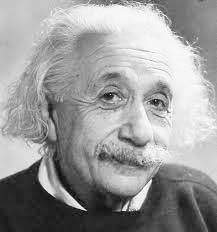
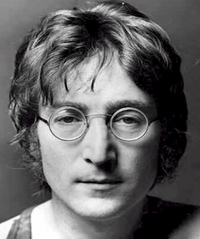
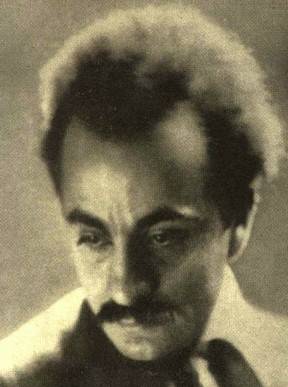
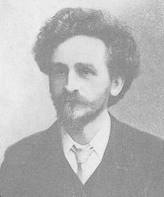
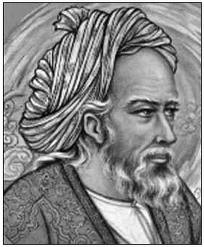
"Words take me for a walk
To places where I cannot talk." (a.blake)
Foundation of Friendship
Albert Einstein

A human being is part of the whole called by us universe, a part limited in time and space. We experience ourselves, our thoughts and feelings as something separate from the rest. A kind of optical delusion of consciousness. This delusion is a kind of prison for us, restricting us to our personal desires and to affection for a few persons nearest to us. Our task must be to free ourselves from the prison by widening our circle of compassion to embrace all living creatures and the whole of nature in its beauty. The true value of a human being is determined by the measure and the sense in which they have obtained liberation from the self. We shall require a substantially new manner of thinking if humanity is to survive. (Albert Einstein, 1954)
The religion of the future will be a cosmic religion. It should transcend personal God and avoid dogma and theology. Covering both the natural and the spiritual, it should be based on a religious sense arising from the experience of all things natural and spiritual as a meaningful unity. Buddhism answers this description. If there is any religion that could cope with modern scientific needs it would be Buddhism. (Albert Einstein)
Albert Einstein (14 March 1879 – 18 April 1955) was a theoretical physicist, philosopher and author who is widely regarded as one of the most influential and best known scientists and intellectuals of all time.
John Lennon
"Part of me suspects that I'm a loser, and the other part of me thinks I'm God Almighty." — John Lennon
"You may say I'm a dreamer, but I'm not the only one. I hope someday you'll join us. And the world will live as one."
"There are two basic motivating forces: fear and love. When we are afraid, we pull back from life. When we are in love, we open to all that life has to offer with passion, excitement, and acceptance . We need to learn to love ourselves first, in all our glory and our imperfections. If we cannot love ourselves, we cannot fully open to our ability to love others or our potential to create. Evolution and all hopes for a better world rest in the fearlessness and open-hearted vision of people who embrace life."
— John Lennon
. We need to learn to love ourselves first, in all our glory and our imperfections. If we cannot love ourselves, we cannot fully open to our ability to love others or our potential to create. Evolution and all hopes for a better world rest in the fearlessness and open-hearted vision of people who embrace life."
— John Lennon
"I believe in God, but not as one thing, not as an old man in the sky. I believe that what people call God is something in all of us. I believe that what Jesus and Mohammed and Buddha and all the rest said was right. It's just that the translations have gone wrong." — John Lennon
John Lennon
Allian Blake
Words
Words take me for a walk,
To places where I cannot talk.
a blake
A Wish
Some roads I travel fast, some slow
And most each one of us I know
Will travel through the fields unknown
And will find neither rest nor peace
Until we find the one we've missed
Which we will know, is our own
The one that makes us feel at home
So search your mind and feel your heart
And if you find a place that's dark
Then turn, and walk away, and never stop.
Find patch of light or sunny sky
And soon you'll find that people smile
And walk with you from time to time
And if they know you listen
They will talk.
And you might find just as did I
That you will like that kind of Life
And you might find that you will like it
Quite a lot.
And this, to each of us I wish
And this is not just Christmas wish
And that's how You and I
Can go through World.
a blake 2011
Life with W
It is a long way before I'll go to sleep
Candle's still burning, song I need to sing
Life – I thought I knew her - Now I know.
How could I go so wrong - for so long
- I don't know.
I cannot feel my heart when it is cold
I cannot sing my song when feeling's strong
But worse of all is being in between
It makes you strong
But you can't stay there for too long
save when you know the song and learn to sing.
a blake 2010
Together
Christmas makes us look at life in different way
And regardless of how far or close we stay
With our friends together or alone
In our mind we'll always be at home
In our mind we'll always be
Although sometime it may look like we are
a blake 2009
One Day
One day I will say: my work is done
And I'll give myself to the sand and the Sun
I'll open my mind so it can be free
And watch Universe unfolding in me
a blake 2010
Shadow
Look over there, behind the wall.
There is a shadow of a man. He seems alone.
Has no one, not at all, no friend.
I think he doesn’t realize or doesn’t care.
Or maybe he just doesn’t mind me being there.
Sometime when I walk by, I stop and watch him for a while.
And when our eyes meet, searching for a spark,
I wander if we are asleep, and whether our heart still beat?
And when I listen well through silence and the dark,
Sometime I see the light. I hear the rhythm sometime.
And there is nothing else.
I think somehow, he’s just like you and I, sometime.
Sometime when I’m alone, I scout.
And leaving comforts of my home behind
I wander far away and somewhere else,
Behind the walls that no one wants or dares to cross,
Searching for shadow of a man. And when he’s there
I stop, and watch him for a while.
I wonder: how and why is he familiar?
Where and why he hides?
I think he doesn’t realize or doesn’t care,
Or maybe he just doesn’t mind me being there.
One day we’ll talk, and I will say: Don’t wait.
Life’s just too beautiful to hide behind this veil.
And we’ll shake hands and laugh and share, and smile.
And we shell understand and we’ll have sparks in our eyes.
And when there’s nothing else to tell
We’ll stay in silence for a while. And we’ll be fine.
And there is nothing else to say.
I think somehow, he’s just like you and I... sometime.
And there is no one else.
Just you and I.
a blake 2009

Omar Khayyám
There was a Door to which I found no Key:
There was a Veil through which I could not see:
Some little Talk awhile of Me and Thee
There seemed -- and then no more of Thee and Me.
And that inverted Bowl we call The Sky,
Whereunder crawling coop't we live and die,
Lift not thy hands to it for help -- for It
Rolls impotently on as Thou or I.
Now the New Year reviving old Desires,
The thoughtful Soul to Solitude retires,
Where the White Hand of Moses on the Bough
Puts out, and Jesus from the Ground suspires.
Ah Love! could thou and I with Fate conspire
To grasp this sorry Scheme of Things entire,
Would not we shatter it to bits -- and then
Re-mould it nearer to the Heart's Desire!
"How sweet is mortal Sovranty!" -- think some:
Others -- "How blest the Paradise to come!"
Ah, take the Cash in hand and waive the Rest;
Oh, the brave Music of a distant Drum!
Omar Khayyám (Persian: عمر خیام), (born 18 May[2] 1048 AD, Neyshapur, Iran—1131 AD, Neyshapur, Iran), was aPersian[3][4] polymath, mathematician, philosopher, astronomer, physician, and poet. He wrote treatises onmechanics, geography, and music.[5]
At a young age he moved to Samarkand and obtained his education there, afterwards he moved to Bukhara and became established as one of the major mathematicians and astronomers of the medieval period. Recognized as the author of the most important treatise on algebra before modern times as reflected in his Treatise on Demonstration of Problems of Algebra giving a geometric method for solving cubic equations by intersecting a hyperbola with a circle.[6]He contributed to the calendar reform and may have proposed a heliocentric theory well before Copernicus.
His significance as a philosopher and teacher, and his few remaining philosophical works, have not received the same attention as his scientific and poetic writings. Zamakhshari referred to him as “the philosopher of the world”. Many sources have testified that he taught for decades the philosophy of Ibn Sina in Nishapur where Khayyám was born and buried and where his mausoleum today remains a masterpiece of Iranian architecture visited by many people every year.[7]
Outside Iran and Persian speaking countries, Khayyám has had an impact on literature and societies through the translation of his works and popularization by other scholars. The greatest such impact was in English-speaking countries; the English scholar Thomas Hyde (1636–1703) was the first non-Persian to study him. The most influential of all was Edward FitzGerald (1809–83)[8], who made Khayyám the most famous poet of the East in the West through his celebrated translation and adaptations of Khayyám's rather small number of quatrains (rubaiyaas) in Rubáiyát of Omar Khayyám.

James Allen
A man has to learn that he cannot command things, but that he can command himself; that he cannot coerce the wills of others, but that he can mold and master his own will: and things serve him who serves Truth; people seek guidance of him who is master of himself.
James Allen
A man is literally what he thinks.
James Allen
A man is not rightly conditioned until he is a happy, healthy, and prosperous being; and happiness, health, and prosperity are the result of a harmonious adjustment of the inner with the outer of the man with his surroundings.
James Allen
A man sooner or later discovers that he is the master-gardener of his soul, the director of his life.
James Allen
Above all be of single aim; have a legitimate and useful purpose, and devote yourself unreservedly to it.
James Allen
All that you accomplish or fail to accomplish with your life is the direct result of your thoughts.
James Allen
As in the rankest soil the most beautiful flowers are grown, so in the dark soil of poverty the choicest flowers of humanity have developed and bloomed.
James Allen
If you real desire is to be good, there is no need to wait for the money before you do it; you can do it now, this very moment, and just where you are.
James Allen
Man is made or unmade by himself. By the right choice he ascends. As a being of power, intelligence, and love, and the lord of his own thoughts, he holds the key to every situation.
James Allen
If you real desire is to be good, there is no need to wait for the money before you do it; you can do it now, this very moment, and just where you are.
James Allen
James Allen (the poet) (November 28,1864 – 1912) was a philosophical writer of British nationality known for his inspirational books and poetry. His best known work, As a Man Thinketh, was mass produced since its publication in 1903 and has provided a key source of ideas to countless bestselling motivational and self-help authors of the twentieth and twenty-first centuries.As a result he is considered as the pioneer of self help movement. As with many of Allen's works, the book's launch was quiet and its full impact was not felt until after his passing.
Born in Leicester, England, into a working class family, Allen was the eldest of three brothers. His mother could neither read nor write while his father, William, was a factory knitter. In 1879, following a downturn in the textile trade of central England, Allen's father traveled alone to America to find work and establish a new home for the family. Within two days of arriving his father was pronounced dead at New York City Hospital, believed to be a case of robbery and murder. At age fifteen, with the family now facing economic disaster, Allen was forced to leave school and find work.
For much of the 1890s, Allen worked as a private secretary and stationer in several British manufacturing firms. In 1893, Allen moved to London where he met Lily Louisa Oram who he then wed in 1895. In 1898, Allen found a occupation in which he could showcase his spiritual and social interests as a writer for the magazineThe Herald of the Golden Age. At this time, Allen entered a creative period where he then published his first book of many books, From Povery to Power (1901). In 1902, Allen began to publish his own spiritual magazine, The Light of Reason, later retitled The Epoch.
In 1903, Allen published his third and most famous book As a Man Thinketh. Loosely based on the biblical proverb, "As a man thinketh in his heart, so is he," the small work eventually became read around the world and brought Allen posthumous fame as one of the pioneering figures of modern inspirational thought. The book's minor audience allowed Allen to quit his secretarial work and pursue his writing and editing career. In 1903, the Allen family retired to the town of Ilfracombe where Allen would spend the rest of his life. Continuing to publish the Epoch, Allen produced more than one book per year until his death in 1912. There he wrote for nine years, producing 19 works.
Following his death in 1912, his wife continued publishing the magazine under the name The Epoch. Lily Allen summarized her husband's literary mission in the preface to one of his posthumously published manuscripts, Foundation Stones to Happiness and Success saying:
"He never wrote theories, or for the sake of writing; but he wrote when he had a message, and it became a message only when he had lived it out in his own life, and knew that it was good. Thus he wrote facts, which he had proven by practice."

Kahlil Gibran
On Friendship
Your friend is your needs answered.
Kahlil Gibran
He is your field which you sow with love and reap with thanksgiving.
And he is your board and your fireside.
For you come to him with your hunger, and you seek him for peace.
When your friend speaks his mind you fear not the "nay" in your own mind, nor do you withhold the "ay."
And when he is silent your heart ceases not to listen to his heart;
For without words, in friendship, all thoughts, all desires, all expectations are born and shared, with joy that is unacclaimed.
When you part from your friend, you grieve not;
For that which you love most in him may be clearer in his absence, as the mountain to the climber is clearer from the plain.
And let there be no purpose in friendship save the deepening of the spirit.
For love that seeks aught but the disclosure of its own mystery is not love but a net cast forth: and only the unprofitable is caught.
And let your best be for your friend.
If he must know the ebb of your tide, let him know its flood also.
For what is your friend that you should seek him with hours to kill?
Seek him always with hours to live.
For it is his to fill your need, but not your emptiness.
And in the sweetness of friendship let there be laughter, and sharing of pleasures.
For in the dew of little things the heart finds its morning and is refreshed.
Khalil Gibran was a 20th century Lebanese American artist, writer and philosopher. Born into an underprivileged family, he successfully carved out his own niche and today the world stands witness to the most fascinating visual art, poems as well as novels which he created in his short life span. He is mainly known for his 1923 book “The Prophet”, a series of philosophical essays written in English prose, which went on to become a bestseller in the United States. The book was an example of inspirational fiction and became quite popular during the 1960s counterculture. After Shakespeare and Lao-Tzu, Gibran is considered to be the most widely read poet in history.